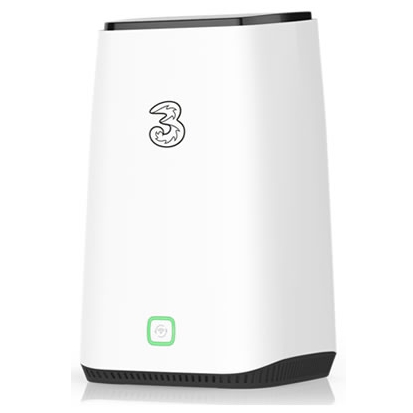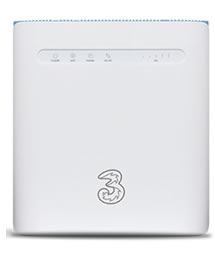
The high browsing speeds and rapid downloading of 5G and to a lesser extent 4G are well documented. However, one thing we feel is underplayed are the benefits which superfast 4G and 5G networks bring to those who enjoy playing their favourite games online.
We’re talking about those who love nothing more than taking down a foe from the other side of the country (or world) with an AK47 in Call of Duty, or winning a battle in League of Legends. In such a competitive environment a good internet connection can often be the difference between life and death.
Unfortunately, not everyone is lucky enough to have access to a fibre broadband connection, so their only option is a mobile broadband connection. That’s always been an underwhelming experience via 3G, but since 4G landed online gaming on mobile networks has come into its own, and with 5G it can truly rival fibre.
5G and 4G networks deliver lower pings than 3G networks, resulting in an improved online environment, while its increased bandwidth and download speeds are also advantageous to gamers. Read on for full details of why 4G is so beneficial to gamers, and the ways in which 5G is even better.
|
Table of Contents |
Lower latency (or ping)
|
Network Type |
Average Latency or Ping (milliseconds) |
|---|---|
|
3G |
100 |
|
4G |
30-50 |
|
5G |
~30-33 |
|
Fixed-line broadband |
4.9-24.2 |
The most important thing in an online environment, particularly in fast-paced shooter and strategy games, is a decent ping. Ping (or latency) is the time it takes for a request to be sent to the game server and back again, so the lower the figure the more responsive things will feel and the easier it’ll be to get a headshot or win that chicken dinner.
On 5G, the median latency is around 30-33ms (milliseconds) depending on network, according to Speedtest data from the second half of 2023. That’s likely to improve over time too, and in future we could see 5G latency drop as low as 1ms.
For comparison, fixed line broadband can still have this beat, with Ofcom in September 2023 finding it can range from as low as a 4.9ms average for some full fibre services, to a 24.2ms average for some ADSL2+ connections.
4G networks meanwhile tend to deliver latency in the range of 30-50ms, with April 2020 Opensignal data reporting 36ms as the lowest average of any UK network on 4G. We’re using this older data because these reports don’t tend to include 4G latency any longer. Finally, 3G connections deliver pings that average around the 100 milliseconds mark.
Given that we’re talking milliseconds that might not seem like much difference on paper, but hardened gamers will know that once pings go above 100 it can affect your ability to compete in fast-paced games. On 4G your shots will register significantly faster than on 3G, meaning you’ll have a much better chance of registering that round-winning headshot, and on 5G you’ll have an even bigger edge.
Faster download and upload speeds
|
Network Type |
Average Download Speeds (Mbps) |
Average Upload Speeds (Mbps) |
|---|---|---|
|
3G |
6 |
3 |
|
4G |
20 |
6 |
|
4G LTE-Advanced |
40 |
10 |
|
5G |
100-300 |
10.0-17.5 |
|
Fixed-line broadband |
11.2-919.8 |
18.4 |
Are you left itching to play while the latest updates for your favourite game download at a snail’s pace?
Then you’re probably stuck on 3G, as while that offers average download speeds of around 6Mbps, on 5G you could be looking at somewhere between 100-300Mbps.
That’s quite a big range, and it’s because results vary a lot between networks and tests, but even at the low end that’s around 17 times faster than 3G, while at the high end it’s roughly 50 times faster.
To give an example of a recently recorded speed, Opensignal found in September 2023 that Three’s average 5G download speed was 205.5Mbps. Now, that was the highest result on test, but that’s also just the average – peak speeds will be far higher still, possibly topping 1Gbps.
For example, the same network recorded a 95th percentile 5G download speed of 853.4Mbps in a RootMetrics report from the second half of 2023.
4G of course sits somewhere in the middle. You should see average download speeds hovering around 22Mbps on most 4G networks, and on EE they’re around 36.4Mbps according to an October 2020 report from Opensignal. That’s thanks in part to its use of LTE-Advanced, which is faster than standard 4G. As with 4G latency, we’re using older reports here because 4G figures don’t tend to be highlighted in recent reports.
This should generally be good enough for gaming, but 5G is really what you should be aiming for as a mobile gamer, as that can truly rival fibre broadband, so you can game just as effectively when out and about as when at home.
That said, the fastest full fibre packages still have most 5G beat, with download speeds averaging up to 919.8Mbps according to Ofcom – while the slowest ADSL2+ fixed-line broadband averages as little as 11.2Mbps.
Uploading is important too though – sharing your latest video clips on YouTube is a huge growth area – with Sony’s PS5 even coming with a dedicated content sharing button on its controller.
Uploading is slower than downloading, so the wait can be longer, but on 5G you’re looking at an average upload speed of between 10.0Mbps (on O2) and 17.5Mbps (on Three) according to September 2023 data from Opensignal.
As for 4G, an earlier Opensignal report points to average 4G upload speeds of roughly 6.2-9.1Mbps depending on what network you use. That’s compared to just 3Mbps on 3G. However, fixed-line broadband upload speeds still have the edge, averaging 18.4Mbps according to Ofcom (though the actual average you experience could be way lower or way higher depending on the speed of the plan you choose).
Game streaming
With all this extra speed, 4G and especially 5G opens up a type of mobile gaming not possible before, namely streaming, where rather than downloading a game, you just stream it from the internet.
This has the advantage of letting you get into the game instantly, rather than needing to wait for it to download, plus you don’t need to fill up all the space on your phone to play lots of games, and you can even play games that wouldn’t run well on your hardware, as the processing is handled elsewhere.
Xbox Cloud Gaming is a prime example of this, as it lets you stream PC and console titles on mobile.
Best mobile broadband deals for gamers
Beyond phones there are three different types of 4G and 5G devices to choose from and it's important to choose the one that best suits your needs.
Mobile Wi-Fi is a portable solution which shares a single connection with multiple devices, home broadband is for sharing internet with a whole household (but requires mains power), and dongles plug into a USB port on a laptop or PC.
|
|
Unlimited data 24-month plan |
£11 a month £22 after 6 months |
|
|
Unlimited data 1-month plan |
£25 a month |
|
|
Unlimited data 24-month plan |
£12 a month £24 after 6 months |
|
|
Unlimited data 18-month plan |
£50 a month |
Mobile Wi-Fi
With the latest breed of mobile 4G and 5G routers (known as mobile broadband devices or mobile Wi-Fi) you can share a single mobile connection with multiple devices at once.
One example is the EE 5G WiFi, which is a 5G mobile broadband device that’s designed to work both portably and in the home. It supports up to 64 simultaneous connections and can leverage the full power of 5G.
It works by creating your own personal Wi-Fi network, meaning you can connect any devices with Wi-Fi, such as the PlayStation 5, Xbox Series X, or a desktop PC.
Other networks have similar gadgets, like the Vodafone 5G Mobile Hotspot, which also offers 5G speeds, but with up to 32 simultaneous connections, while O2 sells the Netgear Nighthawk M6, which can also get up to 32 devices online at 5G speeds. These both also include Ethernet ports for wired connections.
For 4G, there’s the Three 4G MiFi, which can share a single 4G connection with up to 10 devices.
Setting everything up couldn't be easier and it’s self-powered with up to 6 hours of battery life from a single charge. Grab it on Three and you can even get unlimited data, so you don’t need to worry about running out, which can otherwise be a problem with this kind of gadget, as connecting multiple devices to it can use up a lot of data.
Other 4G options include the EE 4G WiFi, the Vodafone 4G Mobile Hotspot, and the Netgear Nighthawk M1.
Home broadband
We’ve looked at portable Wi-Fi devices above, but you can also get 4G home broadband, or for the best speeds possible, 5G home broadband.
If you need the fastest device possible then you’ll want a 5G home broadband device, such as the Vodafone GigaCube 5G, EE Smart 5G Hub, or Three 5G Broadband, each of which can be as fast as speedy fibre broadband, so these are no-compromise options. Most of these routers support up to 64 device connections at once (while EE’s tops out at over 100), and there’s no landline required.
A prime example of 4G home broadband meanwhile is Three 4G Broadband (aka the ZTE MF286D) offered by Three, which supports 4G LTE-A.
Like other 4G and 5G home broadband routers, Three 4G Broadband is simple to set up, offering plug and play functionality once you’ve put the supplied 4G SIM card in, so there’s no need for an engineer visit. It can get up to 64 devices online simultaneously, which is more than most homes should need, and it offers download speeds of up to 600Mbps and upload speeds of up to 150Mbps, which is more than enough for gaming, and better than most rival 4G devices.
If you’d rather be with EE, consider the EE Smart 4G Hub 2, which is a similar prospect and also supports 64 simultaneous connections, or get the Vodafone GigaCube 4G if you want 4G home broadband on Vodafone.
There’s also the 4G WiFi Router and 5G WiFi Router from National Broadband. This company will supply a router and deliver coverage with whichever network has the best coverage in your home.
Note that all of the devices listed in this section include at least one Ethernet port, for if you want an even more stable wired connection.
Dongles
As well as larger mobile broadband devices you can also get compact dongles – these plug into the USB port of a compatible device and get them online.
They’re small enough that you can throw one in your pocket, so you’re always prepared for an online game, and they’re often cheaper than a battery-powered MiFi device too, since they don’t need a battery of their own (instead drawing power from the device they’re connected to). They only get one device online at once, but one is probably all you’ll need for gaming.
There are a few to choose from, but the Vodafone 4G Mobile Dongle is one of the best for gamers, offering 4G download speeds of up to 150Mbps.
That’s more than any network is currently likely to deliver in the real world outside of 5G, so it’s plenty, as well as being slightly future-proofed.
You also get upload speeds of up to 50Mbps, which again is well above the average any network is likely to deliver in practice right now.
It’s also compact and offers plug and play connectivity, so there’s no complicated setup to go through. The only real downside of this dongle (and this applies to all dongles) is that the device you’re connecting it to needs a USB port, and that most dongles only work with Windows and Mac devices.
Note that at the time of writing no UK networks sell 5G dongles, so for the very best possible mobile data speeds you’ll need to choose another product type, such as the options above – or buy a dongle outright from a store and pair it with a data-only plan.
Tips for getting the best performance
If you want to use 5G or 4G for gaming then – obviously – 5G is the best option if that’s available to you, since it’s faster than 4G and offers lower latency.
You’re also likely to be better off with a home broadband device than mobile broadband. These are heftier contraptions that tend to offer better performance (especially as you can often attach an external antenna to them). Of course, home broadband is only suitable if you plan to game somewhere where you have access to a socket.
Whatever device you’re using, it’s best to place it near a window as that can deliver improved signal – and if you’re using mobile broadband, at the very least make sure you take the router out of your bag or pocket. Staying close to the router while playing can also help.
Finally, if both the device you’re gaming on and your router have an Ethernet port, it’s worth using an Ethernet cable, as a wired connection will typically deliver higher and more consistent speeds.
Whatever your setup, it’s worth checking the speed you’re getting (using a website like fast.com), and then moving the mobile broadband device or making other adjustments if you’re not happy with the results.
How much data does gaming use?
4G and even more so 5G are game-changers – literally – for online gaming, but one thing they don’t fix is data use. In fact, mobile games are now likely to use more data than before, since they can rely on fast mobile networks to download things quickly.
So how much data are we talking? That depends on the game and the device, but the good news is that for mobile games it’s not generally too bad. Wirefly reports that mobile games tend to use between 10-100MB per hour, with some turn-based games using as little as 1-3MB of data per hour.
Similarly, a WhistleOut report listed Marvel Snap as using 20MB per hour on average, while even the PC MMO World of Warcraft reportedly uses just 40MB per hour on average.
Some games aren’t so light on your data though. Many online PC games can use upwards of 100MB per hour. Exact usage is generally hard to pin down, but forums are full of players claiming that data usage can hit numbers as high as 1GB or more per hour in extreme cases.
That’s for PC and console gaming though, which is only an issue if you’re using 4G or 5G to get something other than a phone or tablet online. For online mobile games, you should generally be fine if you have a data allowance of 15GB or more, but if you plan to tether or use a MiFi or 4G or 5G home broadband device (explained above) for your online gaming, you might want the biggest data allowance offered by your network.
You’ll also likely want a higher data allowance if you plan to stream games (like services such as Xbox Cloud Gaming allows for) rather than downloading them.
Conclusion
Online gamers who can’t get a full fibre home broadband connection, or who love gaming on the move, should consider getting themselves a 5G home broadband or Mobile Wi-Fi device, or if that’s not an option then at the very least a 4G one. They deliver lower pings, faster downloads, and quicker uploads than 3G networks, resulting in a much-improved experience overall.
5G is of course the best option, and is even a real alternative to fibre broadband, but just make sure you have coverage where you need it if opting for that, as it’s not as widespread as 4G.















